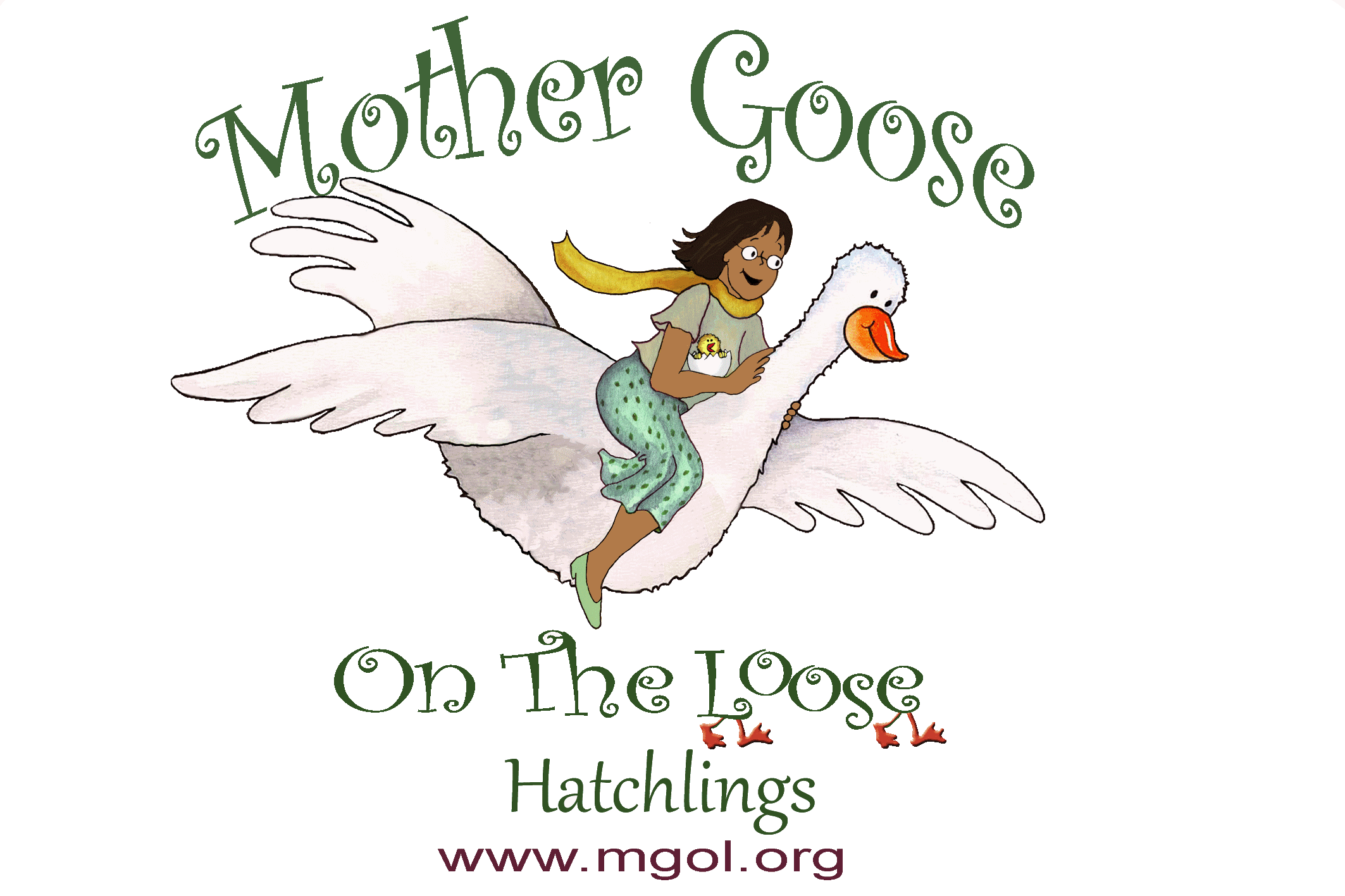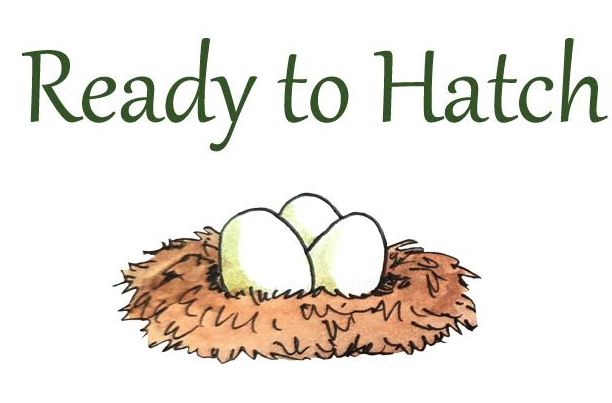Key Hatchlings Concepts
Both Hatchlings programs’ (“Ready to Hatch” – before baby is born) and (“In the Nest” – after baby arrives) are designed to:
- empower parents as their babies’ first and most important teacher
- plant the roots of early literacy development for expectant and new families through in-person and outreach programming so that ALL families can learn the importance of daily early reading (sharing books), singing, and bonding with their babies
- inform families that literacy begins before birth and continues in the earliest months of life
- help parents discover how librarians and library early literacy programs can support and engage expectant families and families with newborns through their preschool years
Hatchlings follows the MGOL Format and Philosophy
- Builds upon a foundation of ritual, repetition, music, movement learning by doing, joy, non-judgmental atmosphere, and play
- Enthusiasm breeds enthusiasm
- Starts each session with warm-up activities to nurture comfort amongst participants before moving into more interactive activities
- Uses props to engage attention
- Teaches lullabies to slow things down
Hatchlings integrates the following Health and Child Development Information:
o After birth, babies can see objects 8 to 10 inches from their face (Newborns like to focus on simple, high contrast black and white images that are easy for them to see and hold their attention while allowing their minds to rest)
o Tummy time is important (i.e. it strengthens head, neck, and upper body muscles, helping babies develop the strength and coordination needed for rolling over, crawling, reaching, and playing)
o Peek-a-boo helps babies focus attention and develop coping skills
o Babies need their sleep for health and growth
o Babies hear words while they are still in the womb and can remember some of what they heard even after birth
Hatchlings highlights Early Literacy information and Practices:
o Children with positive feelings about books from infancy find it easier to learn to read
o Becoming aware of syllables and the sounds in words is essential for learning how to read
o It’s never too early to start showing your baby the meaning of words; parents learn to talk to their babies throughout the day by verbalizing their babies’ experiences
o Hearing and making animal sounds helps babies hear the smaller sounds in words
o Changing the words to songs and rhymes keeps them fun and can make them more relevant
MGOL Hatchlings: “Ready to Hatch” is a one session program that will be held once a month for four months in the participating library as well as in an outreach location in coordination with at least one community partner. Its focus is on expectant families, many of whom may be non-library users, at-risk families, or families from under-represented populations.
Click here for the downloadable Ready to Hatch materials.
Click here to watch a virtual presentation of mini-Hatchlings: Ready to Hatch.
 MGOL Hatchlings: “In the Nest” is a four session program that will take place once a week for four consecutive weeks in both the library and in an outreach location in coordination with at least one community partner. It is designed for parents with newborns (from birth to four months old), many of whom may be non-library users, at-risk families, or families from under-represented populations.
MGOL Hatchlings: “In the Nest” is a four session program that will take place once a week for four consecutive weeks in both the library and in an outreach location in coordination with at least one community partner. It is designed for parents with newborns (from birth to four months old), many of whom may be non-library users, at-risk families, or families from under-represented populations.
Click here for the In the Nest materials.
IMPORTANT: Before facilitating any of your Hatchlings sessions, it is highly recommended that you watch this video about Programming for Parents with Infants. It will help you to prepare for presenting the Hatchlings sessions.
 |
|


